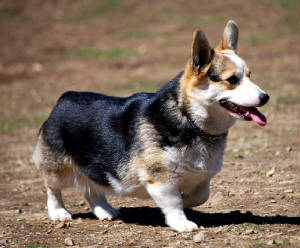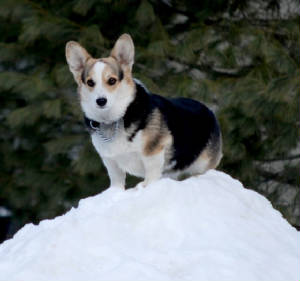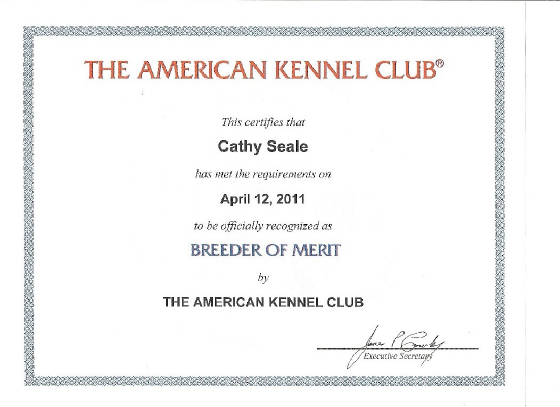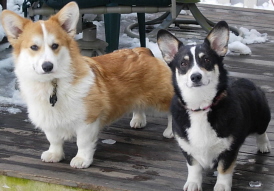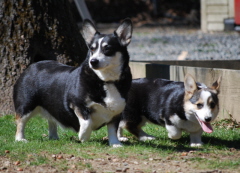Deciding what kind of dog to get is as important as deciding whether to get a dog in the first place. The AKC recognizes over 160 different breeds of dog, and each of these breeds has its own unique temperament, appearance, activity level and set of needs. You should do some serious and careful research to determine which breed of dog is right for you and your family. Corgis live 12 to 15 years and over that time span you will invest a fair amount of time, energy, and expense. Here are some things to consider about the Cardigan and Pembroke Welsh Corgi:
If you want a dog who…
- Is a “big dog” with short legs, i.e. built long and low to the ground, but with a robust body, heavy bone, and a working dog temperament
- Is spirited and athletic, but needs only moderate exercise to maintain his muscle tone
- Has a short easy-care coat in a variety of colors
- Is steady and dependable
- Is polite with guests and makes a sensible watchdog
- Is usually fine with other family pets, and especially good with livestock
A Welsh Corgi may be right for you.
If you don’t want to deal with…
- Providing lots of mental stimulation that fulfills his desire to work and gives him something productive to do
- Destructiveness when bored or left alone too much
- Territorial aggression toward dogs and cats he doesn’t know
- Strong-willed mind of his own, requiring a confident owner who can take charge
- Chasing and nipping at things that move: children, joggers, other animals, bikes, cars
- Barking
- Heavy shedding
A Welsh Corgi may NOT be right for you.
When considering a Welsh Corgi, some major concerns are:
- Providing enough exercise and mental stimulation. With their short legs and long body, Welsh Corgis don’t need or want miles of running exercise, but they MUST have regular opportunities to vent their energy and to use their busy minds to do interesting things. Otherwise they will become bored — which they usually express by barking and destructive chewing.
- Chasing other animals. One of the Welsh Corgi’s responsibilities was to drive away strange dogs from their owner’s farm and flock. Many Welsh Corgis are dominant or aggressive toward dogs and cats they don’t know. Because they also hunted vermin, some have strong instincts to chase small fleeing creatures.
- Mind of their own. Welsh Corgis
 are not Golden Retrievers. The best Corgis are versatile working dogs, capable of learning a great deal, but they have
an independent mind of their own and are not pushovers to raise and train. They can be manipulative or willful, and you
must show them, through absolute consistency, that you mean what you say.
are not Golden Retrievers. The best Corgis are versatile working dogs, capable of learning a great deal, but they have
an independent mind of their own and are not pushovers to raise and train. They can be manipulative or willful, and you
must show them, through absolute consistency, that you mean what you say. - Barking. Welsh Corgis are often too quick to sound the alarm at every new sight and sound. You have to be equally quick to stop them. If you work all day and have close neighbors, Welsh Corgis are not a good choice for you. For the same reason, Corgis should NEVER be left outside in your yard, unsupervised. To make matters worse, some Corgis have intense, high-pitched barks that can set your teeth on edge.
- Heavy shedding. Welsh Corgis shed a lot. You’ll find hair and fur deposited all over your clothing, upholstery, carpeting, under your furniture, on your countertops — even in your food. Frequent vacuuming will become a way of life.
Sources: AKC.org and Your Purebred Puppy
